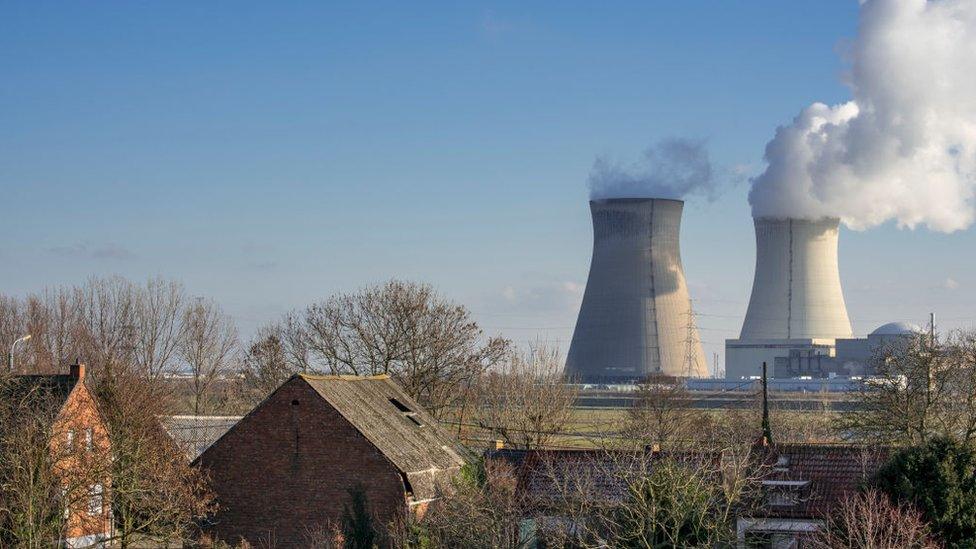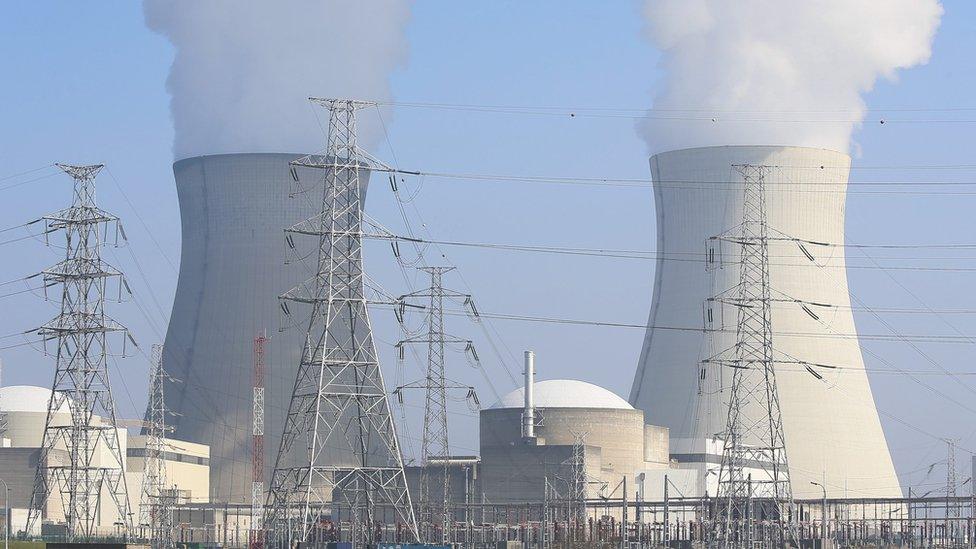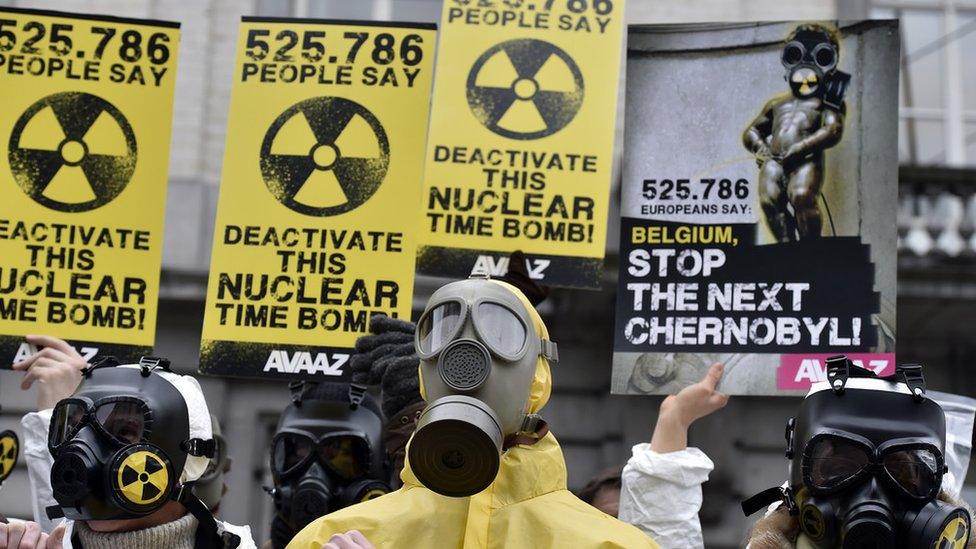Belgium agrees to close controversial ageing nuclear reactors
- Published

Cracks and leaks in the country's reactors have sparked concerns
The Belgian government has reached a deal to close seven ageing nuclear reactors by 2025.
The reactors, housed at two plants in Doel and Tihange, have long been controversial. They have been shut down repeatedly for safety checks and have sparked fear in neighbouring countries.
A compromise was reached after years of debate and overnight talks by government ministers.
The plan in principle was confirmed at a press conference on Thursday.
Closures will begin in 2022 with the aim of both plants being safely decommissioned and demolished by 2045, Reuters news agency reports.
Some reactors at the plants, operated by utility company Engie, have been operational since the 1970s and have long been a source of regional concern.
Tensions flared in 2015 when plans to use reactors beyond their 40-year design life was met with complaints coming from cities across nearby borders.
The German city of Aachen even began offering iodine tablets to residents in 2017 over safety fears about the reactors at Tihang following closures over cracks and water leaks.

Debate over how to handle the nuclear issue has dragged on for years with sharp divides between the parties in government, who had set 2021 as the deadline to resolve the matter.
The principle agreement hopes to see two gas-fired plants built to make up the energy shortfall. The government say the plan will be revisited in March over possible permit issues.
Prime Minister Alexander De Croo said it was possible newer reactors built at the sites could be extended as a safety net but added this was "very unlikely".
The country will not turn its back on nuclear technology completely as part of the compromise deal, with 100 million euros ($113m; £84m) to be invested into research including on smaller, modular nuclear energy plants.
Questions about nuclear power continue to divide Europe amid a push for countries around the world to switch from fossil fuels to cleaner energy resources that are not as polluting to the climate.
The European Commission is expected to present a green energy classification list in January, which will deem which sources are seen as sustainable and eligible for investment as part of carbon-neutrality commitments.
Some nations reliant on nuclear energy, like France, have pushed for it to be included in the taxonomy plan but other nations, like Germany, have showed opposition.
Germany is committed to switching off its last nuclear plant by the end of next year and its new government aims to phase out coal by 2030.
Related topics
- Published20 April 2016

- Published2 February 2016
